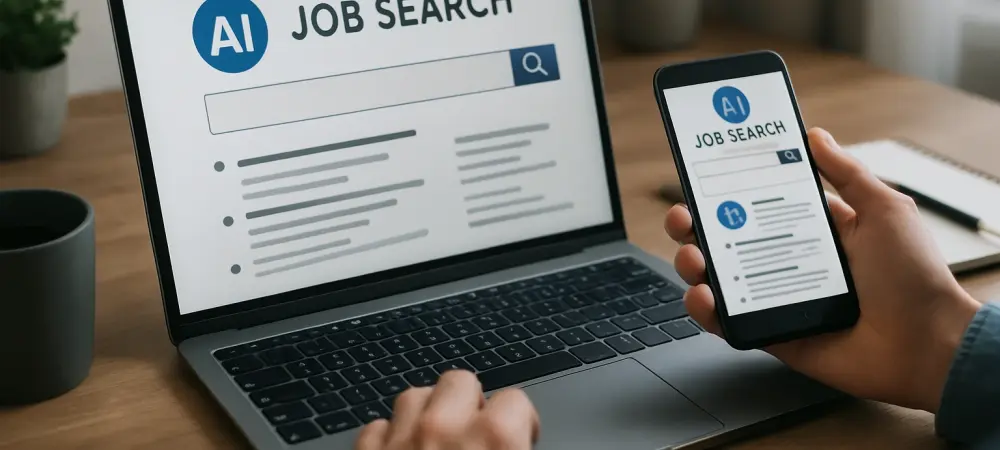I’m thrilled to sit down with Dominic Jainy, an IT professional whose deep expertise in artificial intelligence, machine learning, and blockchain makes him a standout voice in today’s tech-driven world. With a passion for exploring how these cutting-edge technologies can transform industries, Dominic brings a unique perspective to the job search process. In this interview, we dive into the growing role of AI tools in job hunting, from crafting tailored applications to analyzing job descriptions and fine-tuning resumes. We’ll explore how to use AI effectively while maintaining a personal touch, the potential pitfalls to avoid, and Dominic’s insights on leveraging technology to stand out in a competitive market. Let’s get started!
How has AI changed the way people approach job hunting in your view?
I think AI has revolutionized job hunting by taking on a lot of the grunt work. Tools like ChatGPT or Gemini can analyze job descriptions, suggest keywords, and even help brainstorm ideas for applications in ways that save hours of manual effort. I’ve seen firsthand how these tools can break down complex job postings into actionable insights, which is a game-changer for candidates who might feel overwhelmed. It’s not about replacing the human element but about freeing up mental space to focus on strategy and personal storytelling.
What’s your opinion on using AI to assist with writing resumes or cover letters?
I’m all for using AI as a starting point or a brainstorming buddy, but I wouldn’t let it write the whole thing. The risk is that the output can feel generic or robotic, and recruiters are getting better at spotting that. I’ve noticed that AI-generated content often lacks the personal quirks or specific experiences that make an application memorable. It’s better to use AI to outline ideas or match skills to a role, then infuse your own voice to make it authentic.
Can you share how AI can be useful in breaking down job descriptions for better applications?
Absolutely, this is one of AI’s strongest suits. I’ve used tools to analyze job descriptions by feeding them the text and asking for key skills or buzzwords to focus on. For example, if a posting emphasizes “project management” and “data analysis,” AI can highlight those terms and suggest how to frame my experience to match. It’s like having a decoder ring for what the employer really wants, which helps tailor your application to stand out rather than just blending in with generic submissions.
How do you feel about uploading personal documents like a resume to AI platforms for customization?
I think it’s a powerful approach, but it comes with some caution. I’ve uploaded my resume to AI tools to get tailored suggestions for different roles, and it’s been incredibly helpful in reframing my experience for, say, a tech-focused role versus a more general IT position. However, I’m always mindful of data privacy and make sure I’m using a trusted platform. When done right, AI can act like a personal editor, tweaking your resume to align with specific job requirements without losing the core of who you are.
In what ways can AI help refine application materials beyond just writing them?
AI is fantastic for spotting gaps or fluff in your materials. I’ve asked it to review my resume and point out areas where I could emphasize achievements more or cut out irrelevant details. For instance, it once flagged that I was over-explaining an old job that didn’t relate to the role I was applying for, which helped me tighten up the document. It’s like having a critical friend who isn’t afraid to tell you what’s not working, and that feedback can make your application much sharper.
Why do you believe it’s critical to review AI-generated content before sending it out?
It’s non-negotiable to double-check everything AI produces. I’ve seen AI make up details or suggest phrasing that sounds off—like once it recommended a skill I didn’t even have just to match a job description. If I hadn’t caught that, it could’ve tanked my credibility. AI is a tool, not a mind-reader, and it can sometimes prioritize fitting a mold over accuracy. A human eye ensures the content reflects your truth and doesn’t come off as fabricated or sloppy.
How can AI assist in uncovering transferable skills for roles in different industries?
AI can be a great bridge for connecting past experience to new opportunities. I’ve used it to map out how my skills in machine learning could apply to a role in, say, financial tech, by asking it to frame my technical expertise in terms of problem-solving or data-driven decision-making. It helped me see that my ability to build algorithms could be pitched as a way to optimize processes in a completely different field. It’s like having a career counselor who helps you see your value in a new light.
What’s your forecast for the future of AI in the job search process?
I believe AI will become even more integrated into job hunting, evolving from a helper to a near-essential tool for staying competitive. We’re likely to see more specialized platforms that not only tailor applications but also predict interview questions or match candidates to roles based on behavioral data. However, I think the human element—authenticity, emotional intelligence—will remain the deciding factor. AI will handle the logistics, but it’s up to us to bring the heart and personality that employers ultimately connect with.

